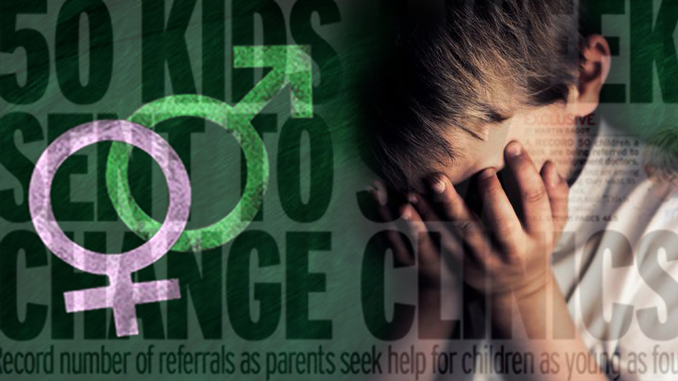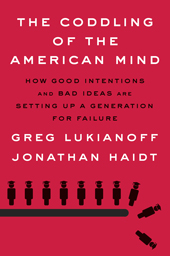
With some 17% of transgendered young adults now wanting to change back to their original biological gender after changing, “de-transitioning” is a new difficulty being faced by this confused and highly propagandized generation.
By Tilton Adler
Making and un-making decisions is a constant in life. As free-thinking adults, we base our decisions on the information, knowledge, and experience we’ve gained over many years. However, for a growing number of 13- to 24-year-old “transgender” individuals, un-making some decisions is easier said than done. Enter the upside-down world of “de-transitioning.”
De-transitioning is defined as changing back to one’s original biological gender after having become a transgendered person.
Some estimates purport 17% of individuals who identify as transgender during their teenage years will eventually transition back to their biological gender, often doing so only after they have started dangerous hormone blocking therapies and irreversible medical treatments.
Increasingly, psychiatrists and medical doctors are writing prescriptions for testosterone and estrogen, hormone blockers that can have a permanent effect with the first dose, especially for children.
Doctors are taking the “affirmative approach,” which is to say they are blindly accepting a child’s naïve belief that they are “trans,” without any real psychological evaluation or clinical observation. Children are being trusted to make life-altering decisions for themselves regarding the chemistry of their bodies years before they are trusted to vote, join the military, or even buy alcohol.
One result of this reckless acceptance is that those same 13-year-old kids are now 22-year-old adults and are deciding they aren’t transgender after all. With their body’s hormones a wreck and their emotional state fragile, we have a generation left in biological limbo. What long-term effects the puberty-blocking hormones will have is yet to be determined. Will reproductive abilities be lost? Will these individuals’ behavioral and emotional development be altered? The question of the role government should or shouldn’t have in preventing doctors from prescribing such drugs to patients under the age of 18 is just beginning to be debated.
Another issue plaguing the parents and families of teens questioning their own gender is known as Rapid Onset Gender Dysphoria (ROGD)—kids who grew up perfectly content with being a boy or a girl until they became obsessed with stories on the Internet of people “fixing their problems” by deciding they are transgender. Psychologist Dr. Lisa Littman defines this developing epidemic as, “A type of late-onset gender dysphoria where the development of gender dysphoria is observed suddenly during or after puberty in a young adult who would not have met criteria for [transgender] in childhood.”
These adolescents convince themselves they are transgender only after watching countless hours of YouTube videos in which their “transgender” peers use phrases like, “I’ve found the real me,” or, “I finally fit in somewhere.”
The teenage years are difficult and full of self-doubt and are the years in which we try on many hats. Are we athletic or poetic? Are we shy or outgoing? Are we comfortable in our own skin, or do we wish we were physically different? It is an essential time in life during which we begin to figure out who we are.

One thing psychologists know about ROGD is that it’s seldom a permanent condition. In many cases, teens are expressing themselves as transgender more as a way to be part of a fad than as a life-long commitment. Acting on this fad or transient condition when young then leads to— you guessed it—de-transitioning as they age.
Many of the choices we make at age 15 are not right for us as we mature, and fortunately, many such teenage choices do not have lifelong impact. Changing our gender is not one of those choices, however.
Many see society’s growing fascination with the tiny portion of our population who identify as transgender as a passing trend. We may know people who are grappling with gender issues but most of us do not. Yet never before has the Internet had such a monstrous hook in our youth, and they are acting on these social pressures in growing numbers. It is difficult but important to realize the difficulty this generation faces now; how much more difficult will it be when, a few years from now, they realize their decision to transition was made as a still-foolish teen based on nothing more than very convincing propaganda? As they come to this realization and choose to de-transition, let this be a time of supporting the un-making of decisions.
Tilton Adler is a freelance writer based in Florida.


When I was 15, I thought I wanted to live inside a perpetual LSD trip. Should I have been allowed to do so, according to today’s “trans” rubric? Well, LSD is a chemical that alters the brain and genetic material, so according to these morons, the answer would be “YES!”
I’m glad I’m not 15 anymore, and glad I wised up before it was too late.